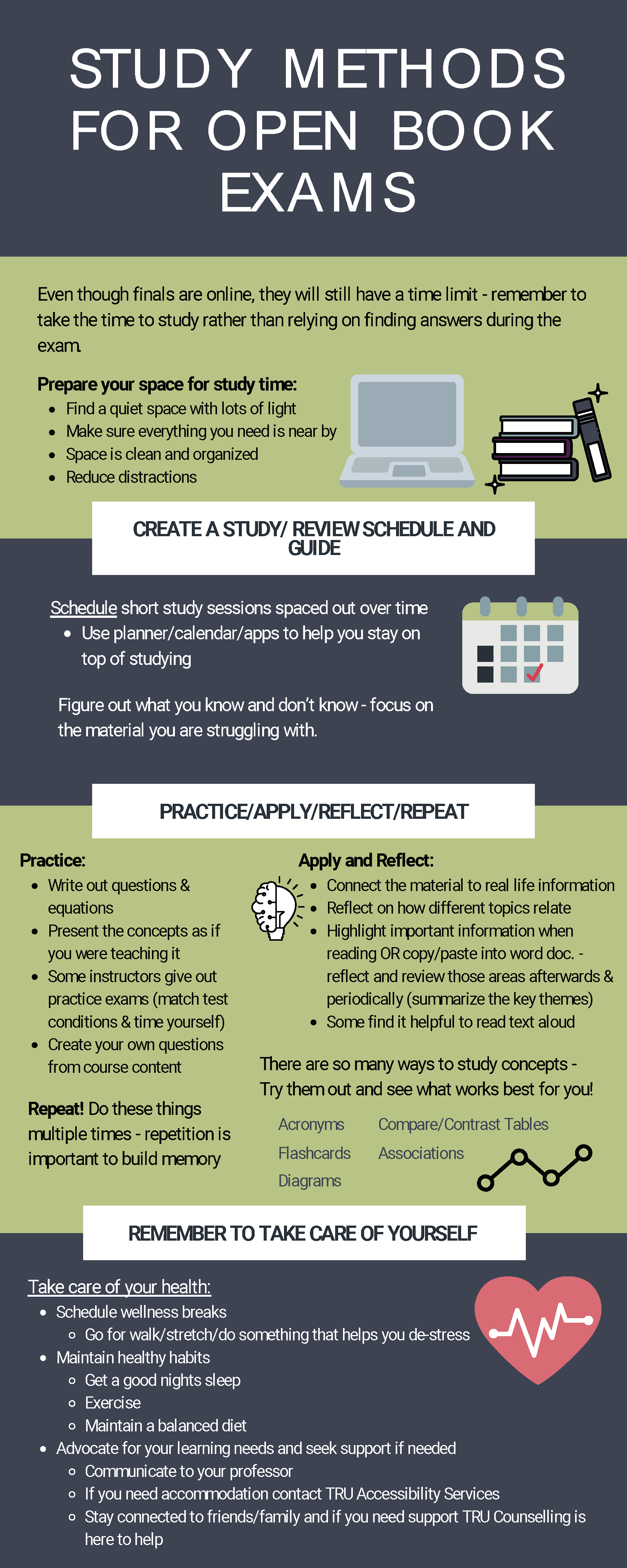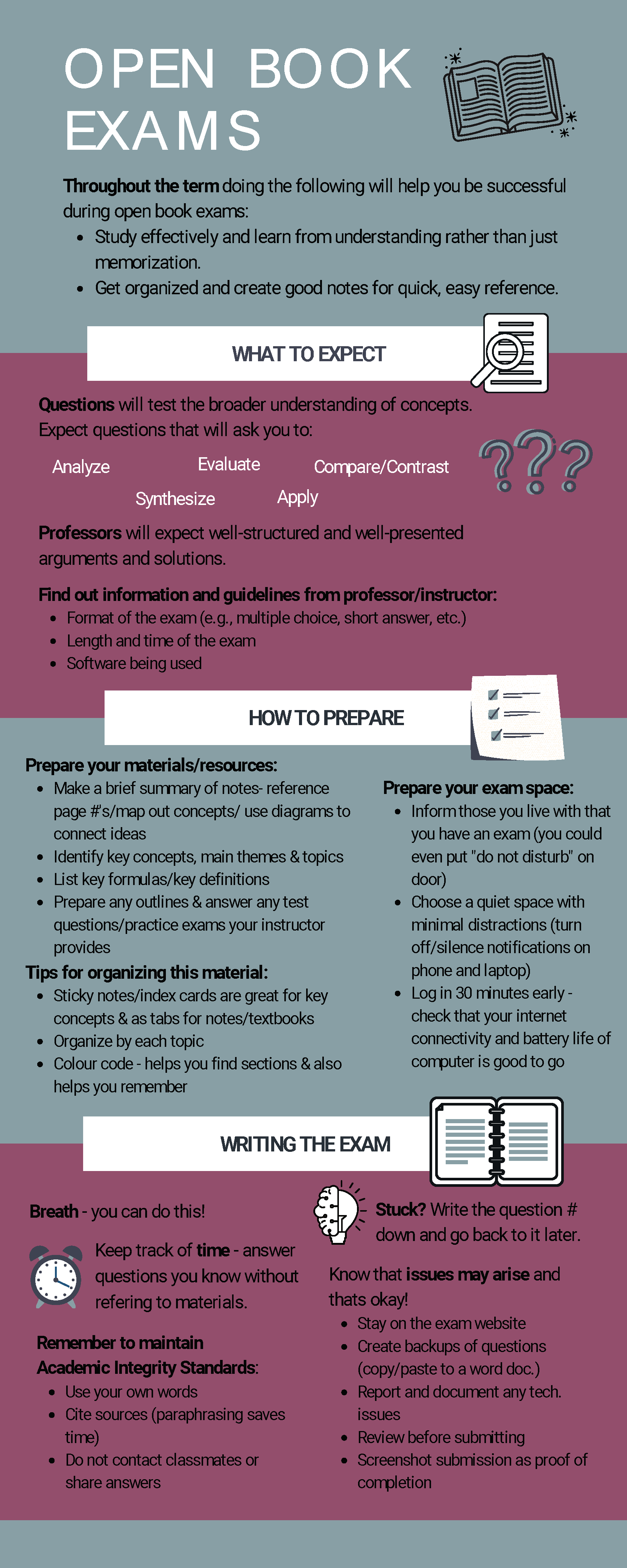Exam Writing Tips
Final exams and projects
You will likely be asked by your instructors to complete exams and/or projects.
A few things to keep in mind:
- Exams may be delivered using the Moodle quiz tool. However, this does not change the kind of evaluation you are doing. If you have any questions about how your exam in presented in Moodle, be sure to ask your instructor as far ahead in advance as possible.
- The assignment tool may be used for projects. It has a dropbox for files, and it allows instructors to provide feedback and grades within Moodle. However, there are many other kinds of activities in Moodle which may be graded which your instructor may used as part of a project or instead of the assignment tool— including discussion forums; wiki activities; chats; and others. As with exams, you should make sure you understand the directions for the project(s) and how these relate to the Moodle tools you are are being asked to use.
- If you consult with your instructor and are experiencing problems with Moodle please send us an email.
Studying for open book exams
Writing open book exams
Academic integrity
It is your responsibility as a student to ensure that you are following good academic integrity practices. Standards for academic integrity at TRU can be found in Student Academic Integrity Policy ED 5-0. Be sure to become familiar with this policy and understand it before you submit work for any of your courses.
Examples of Cheating
- Copying from another student
- Allowing another student to copy from you
- Using electronic devices, including smartphones or smartwatch
- Using notes during your test, mid-term or exam
Examples of Academic Misconduct
- Stealing, buying, or getting a test and answer key
- Selling a test or part of an answer key
- Having someone else take the test for you
- Entering a false grade in a grade book or online
- Breaking into a building or office to change a test grade
Examples of Fabrication
- Listed sources in a bibliography not in the academic paper
- Inventing data and information for research or to add to an academic paper
- Citing information not taken from the source cited
- Submitting a paper as your own
Examples of Plagiarism
- Quoting another person’s actual words
- Use images produced by another person
- Resubmitting an assignment in another class
- Using another person’s idea, opinion or theory EVEN if you paraphrase
- Citing facts, stats or illustrative images when it’s NOT considered common knowledge
Learn more about plagiarism here.
If you are having difficulties with academic integrity, take the one credit STSS 1070 course to learn about researching, gain valuable writing skills, understand academic integrity and prevent plagiarism.
You can also access support by contacting the Learning Strategist for Academic Integrity, by emailing mailto:aic@tru.ca. The Learning Strategist will schedule appointments with students directly via e-mail. You can also call them at 250-828-5023.


